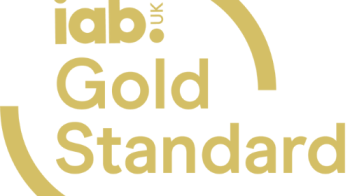Internet Advertising Bureau - Anti-corruption and bribery policy
Posted on Tuesday 22 July 2025 | IAB UK
1. About this policy
At the IAB UK, it is our policy to conduct all our business in an honest and ethical manner. We take a zero-tolerance approach to bribery and corruption (including fraud or tax evasion) and are committed to acting professionally, fairly and with integrity in all our business dealings and relationships.
Any employee who breaches this policy will face disciplinary action, which could result in dismissal for gross misconduct. Any non-employee who breaches this policy may have their contract terminated with immediate effect.
This policy does not form part of any employee's contract of employment, and we may amend it at any time. It will be reviewed regularly.
2. Who must comply with this policy?
This policy applies to all persons working for us or on our behalf in any capacity, including employees at all levels, directors, officers, agency workers, seconded workers, volunteers, interns, agents, contractors, external consultants, third-party representatives and business partners.
3. What is bribery?
Bribe means a financial or other inducement or reward for action which is illegal, unethical, a breach of trust or improper in any way. Bribes can take the form of money, gifts, loans, fees, hospitality, services, discounts, the award of a contract or any other advantage or benefit.
Bribery includes offering, promising, giving, accepting or seeking a bribe.
All forms of bribery are strictly prohibited. If you are unsure about whether a particular act constitutes bribery, raise it with your manager or the Chief Operating Officer.
Specifically, you must not:
-
give or offer any payment, gift, hospitality or other benefit in the expectation that a business advantage will be received in return, or to reward any business received.
-
accept any offer from a third party that you know, or suspect, is made with the expectation that we will provide a business advantage for them or anyone else.
-
give or offer any payment (sometimes called a facilitation payment) to a government official in any country to facilitate or speed up a routine or necessary procedure.
You must not threaten or retaliate against another person who has refused to offer or accept a bribe or who has raised concerns about possible bribery or corruption.
4. Bribery - Gifts and hospitality
This policy does not prohibit the giving or accepting of reasonable and appropriate hospitality for legitimate purposes such as building relationships, maintaining our image or reputation, or marketing our products and services.
A gift or hospitality will not be appropriate if it is unduly lavish or extravagant or could be seen as an inducement or reward for any preferential treatment (for example, during contractual negotiations or a tender process).
Gifts must be of an appropriate type and value depending on the circumstances and taking account of the reason for the gift. Gifts must not include cash or cash equivalent (such as vouchers) or be given in secret. Gifts must be given in our name, not your name.
Promotional gifts of low value such as branded stationery may be given to or accepted from existing customers, suppliers and business partners.
5. Bribery - Record-keeping
You must declare and keep a written record of all hospitality or gifts given or received. You must also submit all expenses claims relating to hospitality, gifts or payments to third parties in accordance with our expenses policy and record the reason for expenditure.
All accounts, invoices, and other records relating to dealings with third parties including suppliers and customers should be prepared with strict accuracy and completeness. Accounts must not be kept "off-book" to facilitate or conceal improper payments.
6. What is tax evasion and what are your responsibilities?
For the purposes of this policy:
-
tax evasion means the offence of cheating the public revenue (e.g. income tax, National Insurance or VAT) or fraudulently evading UK tax and is a criminal offence. The offence requires an element of fraud, which means there must be deliberate action or omission with dishonest intent.
-
foreign tax evasion means evading tax in a foreign country, provided that conduct is an offence in that country and would be a criminal offence if committed in the UK. As with tax evasion, the element of fraud means there must be deliberate action or omission with dishonest intent.
-
tax evasion facilitation means being knowingly concerned in, or taking steps with a view to, the fraudulent evasion of tax (whether UK tax or tax in a foreign country) by another person, or aiding, abetting, counselling or procuring the commission of that offence. Tax evasion facilitation is a criminal offence where it is done deliberately and dishonestly.
Under the Criminal Finances Act 2017, a separate criminal offence is automatically committed by a corporate entity or partnership where the tax evasion is facilitated by a person acting in the capacity of an “associated person” to that body. For the offence to be made out, the associated person must deliberately and dishonestly take action to facilitate the tax evasion by the taxpayer. If the associated person accidentally, ignorantly or negligently facilitates the tax evasion, then the corporate offence is not committed. The company does not have to have deliberately or dishonestly facilitated the tax evasion itself; the fact that the associated person has done so creates the liability for the company. This means that, as an employer, if we fail to prevent our employees, workers, agents or service providers facilitating tax evasion, we can face criminal sanctions including an unlimited fine, as well as exclusion from tendering for public contracts and damage to our reputation.
Tax evasion is not the same as tax avoidance or tax planning. Tax evasion involves deliberate and dishonest conduct. Tax avoidance is not illegal and involves taking steps, within the law, to minimise tax payable (or maximise tax reliefs).
In this policy, all references to tax include National Insurance contributions (and their equivalents in any non-UK jurisdiction).
It is not acceptable for you (or someone on your behalf) to:
-
engage in any form of facilitating tax evasion or foreign tax evasion.
-
aid, abet, counsel or procure the commission of a tax evasion offence or foreign tax evasion offence by another person.
-
fail to promptly report any request or demand from any third party to facilitate the fraudulent evasion of tax (whether UK tax or tax in a foreign country), or any suspected fraudulent evasion of tax (whether UK tax or tax in a foreign country) by another person, in accordance with this policy.
-
engage in any other activity that might lead to a breach of this policy.
-
threaten or retaliate against another individual who has refused to commit a tax evasion offence or a foreign tax evasion offence or who has raised concerns under this policy.
Your responsibilities to prevent tax evasion are as follows:
-
You must ensure that you read, understand and comply with this policy.
-
The prevention, detection and reporting of tax evasion and foreign tax evasion are the responsibility of all those working for us or under our control. You are required to avoid any activity that might lead to, or suggest, a breach of this policy.
-
You must notify your line manager or the Chief Operating Officer as soon as possible if you believe or suspect that a conflict with this policy has occurred or may occur in the future. For example, if an employee or supplier asks to be paid into an offshore bank account without good reason, or a supplier asks to be paid in cash, indicating that the payment will not be subject to VAT.
7. What is fraud and what are your responsibilities?
Fraud can take many forms, including but not limited to, fraud by false representation; by failing to disclose information; by abuse of position; by cheating the public revenue; by false accounting; by false statements by company directors; by fraudulent trading; by participating in a fraudulent business; or by obtaining services dishonestly.
We take a zero-tolerance approach to fraud. You must not engage in or facilitate any form of fraud, whether under UK law or under the law of any foreign country.
8. How to raise a concern
Bribery: If you are offered a bribe, or are asked to make one, or if you suspect that any bribery, corruption or other breach of this policy has occurred or may occur, you must notify your manager or report it in accordance with our Whistleblowing Policy as soon as possible.
Tax Evasion: You are encouraged to raise concerns about any issue or suspicion of tax evasion or foreign tax evasion at the earliest possible stage. If you become aware of any fraudulent evasion of tax (whether UK tax or tax in a foreign country) by another person in the course of your work, or you are asked to assist another person in their fraudulent evasion of tax (whether directly or indirectly), or if you believe or suspect that any fraudulent evasion of tax has occurred or may occur, whether in respect to UK tax or tax in a foreign country, you must report it to your line manager or report it in accordance with our Whistleblowing Policy as soon as possible.
If you are unsure about whether a particular act constitutes tax evasion or foreign tax evasion, raise it with your line manager or the Chief Operating Officer as soon as possible. The corporate offence is only committed where you deliberately and dishonestly take action to facilitate the tax evasion or foreign tax evasion. If you do not take that action, then the offence is not made out. However, a deliberate failure to report suspected tax evasion or foreign tax evasion, or ignoring suspicious activity, could amount to criminal facilitation of tax evasion.
Fraud: You must immediately report to your line manager or the Chief Operating Officer any concerns that fraud has or may have been committed and co-operate in any investigation we undertake. You may also make any report in accordance with our Whistleblowing Policy.
9. Protection
Individuals who raise concerns or report another's wrongdoing are sometimes worried about facing possible repercussions. We aim to encourage openness and will support anyone who raises genuine concerns in good faith under this policy, even if they turn out to be mistaken.
We are committed to ensuring no one suffers any detrimental treatment because of:
refusing to take part in, be concerned in or facilitate bribery, fraud, tax evasion or foreign tax evasion by another person.
refusing to aid, abet, counsel or procure the commission of a bribery, fraud, tax evasion offence or a foreign tax evasion offence by another person; or
reporting in good faith their suspicion that an actual or potential bribery, fraud, tax evasion offence or foreign tax evasion offence has taken place or may take place in the future.
Detrimental treatment includes dismissal, disciplinary action, threats or other unfavourable treatment connected with raising a concern. If you believe that you have suffered any of this treatment, you should inform the Chief Operating Officer immediately. If the matter is not remedied, and you are an employee, you should raise it formally using our Grievance Procedure, which is in the Staff Handbook.
10. Breaches of this policy
Any employee who breaches this policy will face disciplinary action, which could result in dismissal for misconduct or gross misconduct.
We may terminate our relationship with other individuals and organisations working on our behalf if they breach this policy.
Written by
IAB UK
Related content
The Role of First-Party Data in DOOH: Insights from IAB UK Members
Learn moreGovernment Communications Service endorses IAB UK’s Gold Standard as Advertiser Supporter
Learn moreAI use case study: RIU x Making Science
Learn moreAI use case study: Microsoft x St Johns ambulance
Learn more
Fast forward to 2030 with Futurescape
An in-depth exploration of the attitudes, innovations and media shifts that will shape the years ahead and redefine how we advertise by the turn of the decade



